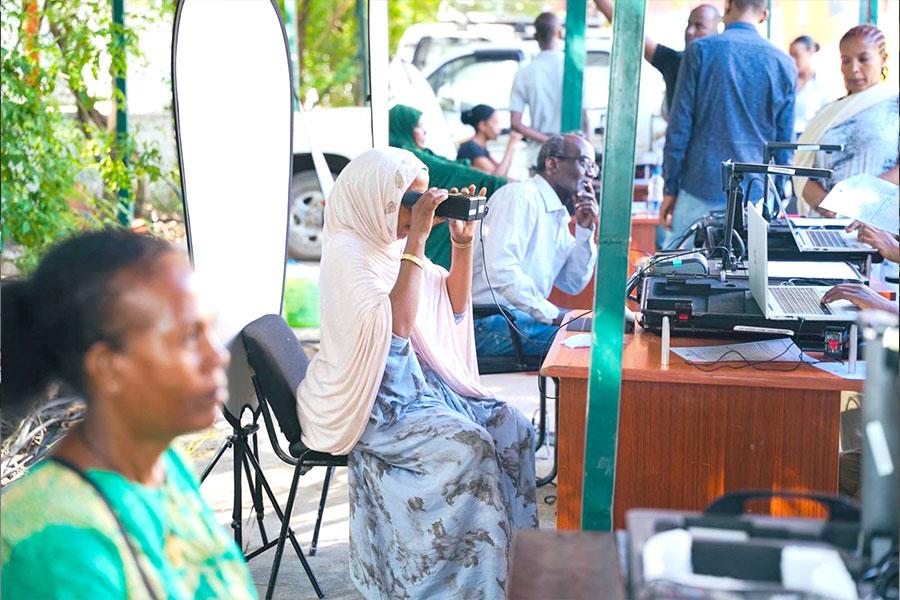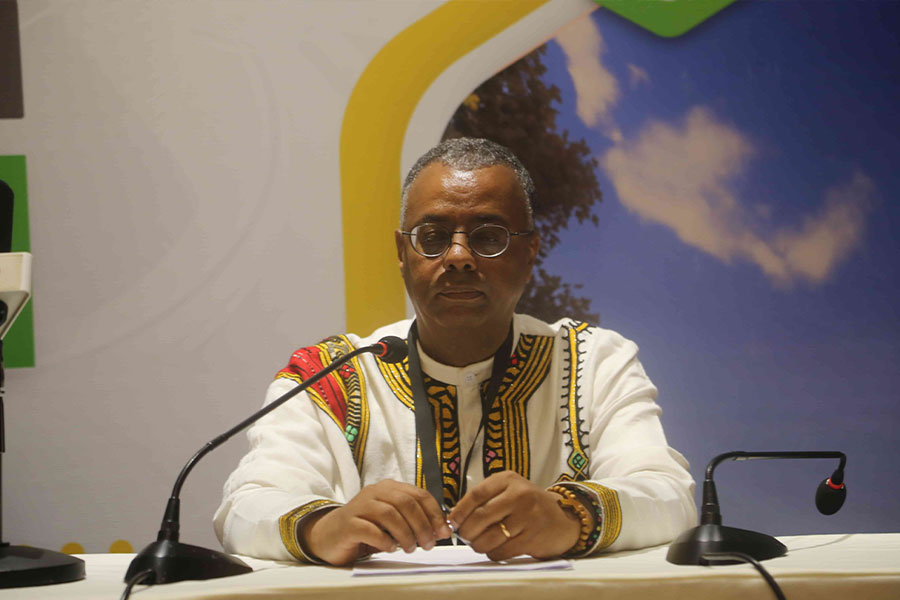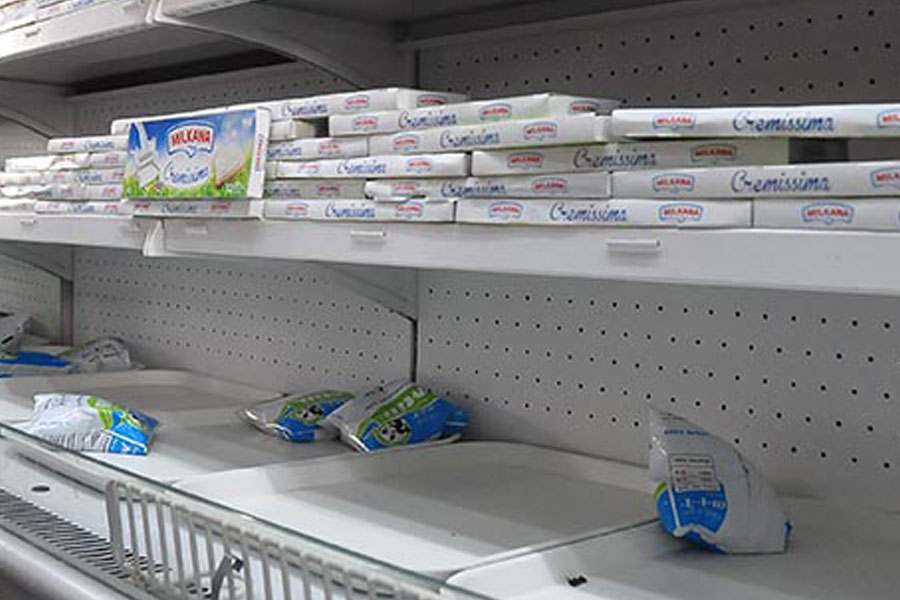
When the meal trays are cleared and the aircraft ascends to its highest altitude, the cabin transforms casting a soothing aura over the space. The once-bright lights are deliberately dimmed, while the inflight entertainment systems are set to idle mode, lowering distractions for weary travellers. For most passengers, this atmosphere serves as an invitation to the embrace of sleep, a welcomed respite during the night flight. However, through the tranquil scene, there is one passenger who remains wide awake, unaffected by the hushed whispers of slumber that fill the cabin.
That is me.
I have never been one to easily succumb to sleep outside the comforts of my home. Whether in a hotel room or as a guest in someone else's abode, the elusive slumber seems to evade me, leaving me with the restless hours of the night. It is a peculiar habit, one that has accompanied me on countless journeys and left its mark on various occasions when the need to travel or stay away from home arises.
Being the only one awake among the hundreds of passengers who are comfortably ensconced in their dreams affords me an extra measure of attention from the crew. Their surprise is palpable at the sight of the solitary passenger, bathed in the soft glow of their seat light, diligently poring over the pages of the inflight entertainment magazine. Their concern is evident as they inquire if everything is alright and if there is anything they can do to assist. It is a care that touches my heart, a reminder of the compassion and kindness that can be found even at 30,000 feet above ground.
I struggle to articulate the peculiarities of my nocturnal habits. But soon, the crew will understand the reason behind my wakefulness when they see what occupies my attention – a crossword puzzle.
To many, the grid of black and white squares filled with cryptic clues may seem like a foreign language, an enigma waiting to be decoded. Indeed, far fewer passengers attempt to engage with the puzzle, preferring instead to surrender to the allure of sleep. But for me, the crossword is not just a game – it is a remedy for the long hours of wakefulness and the frustration that accompanies it.
The mechanics of the crossword are simple yet profound. Clues, provided outside the grid, beckon the solver to go into the depths of their vocabulary and knowledge, seeking answers that fit seamlessly into the checkered tableau. Each word must align perfectly with its neighbours, forming a cohesive form of language and logic. As the game progresses, the need for precision becomes more apparent, as incorrect answers can lead to a cascade of confusion and chaos.
Armed with nothing more than a pencil and an eraser, I embark through the crossword grid, guided by intuition and ingenuity. Each clue presents a puzzle to be solved through a combination of deduction and creativity. As I fill in the blanks, a sense of satisfaction washes over me, a tangible reminder of the power of perseverance and the joy of discovery.
My friend and I were a formidable crossword duo, going through two entire volumes of the brainteasers. However, our victories were witnessed by a bewildered audience – our friends. Despite their strong grasp of English and general intelligence, crosswords remained an enigma for them. The frustration was palpable. We would solve a clue, explain the answer, and they would exclaim, "Of course! I knew that!" But attempts to tackle the next one would invariably end in head-scratching defeat. The most seemingly obvious clues seemed to vanish into thin air when they stared them down.
Crosswords demanded intuition, the ability to make connections and a calm demeanour. Thankfully, we complemented each other perfectly. He possessed a vocabulary that would put a thesaurus to shame. One look at a clue, and he would effortlessly conjure up a word I had never even encountered.
"What in the world is a 'floccinaucinihilipilification'?" I would gasp, utterly bewildered. His patient explanations would unlock the door to this obscure corner of the English language.
My strength lay in intuition. I could often guess the answer based on a hunch or a seemingly random connection. He would meticulously ponder a clue, while I scan the grid, answers popping into my head like popcorn kernels. "How did you get that so fast?". Honestly, it was usually a spark of recognition I could not explain.
The beauty of crosswords, though, was the gradual unveiling of the puzzle. With each correct answer, the remaining clues became clearer, rewarding our efforts with a sense of accomplishment. Sometimes, entire rows or columns would magically fill themselves in.
Though not widely practised in Amharic, the crossword holds untapped potential in its ability to engage and educate, offering a new frontier in language learning and entertainment. It is not confined to a single theme and can be tailored to suit the interests and preferences of art, science, history, or sports. This thematic flexibility adds an extra layer of intrigue to the game, keeping players engaged and entertained as they delve into their favourite subjects.
But perhaps the most profound revelation of all is the impact of crosswords on mental health and well-being. Research has shown that regular puzzle-solving can delay memory decline and alleviate symptoms of dementia, offering a glimmer of hope in the face of a daunting health challenge. It is believed to alleviate anxiety and improve mood, providing a much-needed reprieve from the stresses of daily life.
A 2017 study presented at the Alzheimer's Association International Conference (AAIC) revealed a fascinating finding. Those who regularly tackled crosswords boasted brainpower equivalent to someone a decade younger!
Crosswords go beyond mere vocabulary boosters. They are social butterflies in disguise. Tackling a puzzle with friends or family is a recipe for laughter, shared "aha!" moments, and the occasional playful jab when someone gets stuck.
Remember Chandler Bing, the witty banter half of Monica Geller in the sitcom "Friends"? Monica and Chandler, all snuggled up in their cosy New York apartment, solving a crossword when Joey Tribbiani, Chandler's less-than-cerebral best friend, witnesses this intellectual tango with a mixture of bewilderment. The show takes a hilarious turn when Joey dreams that night of conquering a crossword himself! Monica, in his dream, is completely stumped by a clue, and Joey, in a moment of glorious insight, triumphantly shouts out the answer: "CAT!" Monica, overcome with admiration, throws her arms around him. The clue, of course, was a picture of a furry feline with whiskers. Classic Joey.
Crosswords are anxiety fighters too. Studies by University of California Berkeley psychologist Sonia Bishop suggest that tackling a crossword can improve mood and alleviate anxiety.
For me, the ultimate crossword experience unfolds with a mug of black coffee and a newspaper spread before me. Each solved clue is a mini-victory, a surge of energy propelling me closer to the checkered finish line. It is a testament to the power of simplicity – a pen, paper, and a cryptic challenge that keeps my mind with a strange kind of creative energy.
Crosswords may reign supreme in my world, but I recognise the vast brain teasers out there. Chess, Sudoku, Chinese Checkers – the list goes on. I tried to lure my son into the crossword fold, but his enthusiasm remained firmly lodged in "thanks, but no thanks" territory. Just as I have my preferences, so does he, and that is the beauty of the mental playground – there is a game for everyone.
I have recommitted to carving out a few minutes each day to reacquaint myself with the joy of cryptic clues. Who knows, maybe my renewed enthusiasm will spark a similar question among friends: "Have you done your crossword puzzle today?" After all, as Andrew E. Budson (MD), a Harvard Medical School professor and crossword champion, once declared in his aptly titled article, it is a simple, affordable, and undeniably beneficial way to keep the mind sharp.
PUBLISHED ON
Mar 30,2024 [ VOL
24 , NO
1248]


Verbatim | Sep 18,2021

Radar | Sep 14,2024

Viewpoints | Jul 01,2023

News Analysis | May 25,2024

Fortune News | Dec 08,2024

Fortune News | Feb 07,2024

Fortune News | Jun 08,2025

News Analysis | Jul 01,2023

Fortune News | May 24,2025

Fortune News | Apr 29,2023

Dec 22 , 2024 . By TIZITA SHEWAFERAW
Charged with transforming colossal state-owned enterprises into modern and competitiv...

Aug 18 , 2024 . By AKSAH ITALO
Although predictable Yonas Zerihun's job in the ride-hailing service is not immune to...

Jul 28 , 2024 . By TIZITA SHEWAFERAW
Unhabitual, perhaps too many, Samuel Gebreyohannes, 38, used to occasionally enjoy a couple of beers at breakfast. However, he recently swit...

Jul 13 , 2024 . By AKSAH ITALO
Investors who rely on tractors, trucks, and field vehicles for commuting, transporting commodities, and f...

Oct 25 , 2025
The regulatory machinery is on overdrive. In only two years, no fewer than 35 new pro...

Oct 18 , 2025
The political establishment, notably the ruling party and its top brass, has become p...

Oct 11 , 2025
Ladislas Farago, a roving Associated Press (AP) correspondent, arrived in Ethiopia in...

Oct 4 , 2025
Eyob Tekalegn (PhD) had been in the Governor's chair for only weeks when, on Septembe...